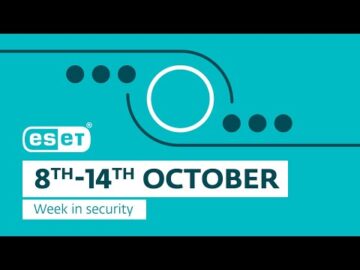From a little girl financially helping her family in Jerusalem to a Nobel Prize laureate. That is the exceptional life of Ada Yonath in a nutshell.
The first female Israeli Nobel Laureate and the fourth woman in the world to be awarded the Nobel Prize in Chemistry, Ada Yonath has dedicated her life to the pursuit of answers to the most crucial scientific questions and to advancing progress in her field. Her curiosity and her passion for science have dictated her life’s path.
Professor Yonath is one of many talented scientists who work on exceptional projects and are conducting research that most of us cannot even comprehend. Her life’s work has been given its due acknowledgment, and she received the Nobel Prize in Chemistry in 2009.
Yonath was born into a family of little means and grew up in Jerusalem with limited study resources but with a great passion for understanding life and a big dose of curiosity about the world. She studied chemistry and biophysics at the Hebrew University of Jerusalem and later earned a doctorate in X-ray crystallography at the Weizmann Institute of Science, a research institution she is a part of to this day.
Crystallography has become her calling, and after a highly innovative, if very long journey, she established the study of ribosome structure and function. Her winning research, which took over 20 years to conduct, eventually led to not only her winning the Nobel Prize, but also to the development of new antibiotics and a better understanding of antibiotic resistance.
“The highly conserved functional center of the ribosome that seems to be the main player in the origin of life enables answering the intriguing question: What was first, the genetic code or its products?” adds Yonath about her research.
If it weren’t for the creative thinking and innovative ideas of Yonath and her team, they — like many others before them — might have not succeeded. However, their passion kept them going, and they finally reached the results they were hoping for. Undeniably, human progress and science are tightly intertwined, and as Yonath says, “The progress itself was very exciting. Seeing how far human curiosity and imagination can go when one is determined is the power pushing us further as scientists.”
We asked Yonath about her growing up with the urge to understand the world around her. Despite noting that she “had no role models” when growing up, there were a few driving factors. She admired Marie Curie, not only because of her scientific achievements but also owing to her contributions to humanity.
Yonath’s desire to learn and willingness to work hard ultimately brought her success in structural molecular biology. According to Yonath, “The one important thing young people aspiring to become scientists should have on their mind is that curiosity is their best friend. If you are curious and passionate about something, you are already on the road to satisfy yourself.”
Setting hard-to-reach goals seems to be a pattern for Yonath, and it’s a testament to her dedication that she has never wavered, even in the face of setbacks. It takes a lot of courage to dive into the unknown, but Yonath says that her “passion and previous experiences motivated [her] to adopt a new perspective.” She adds, “Through nonconventional thoughts and thinking outside the box, we were able to come to new and exciting scientific conclusions.”
There are very few people who have never had any doubts about themselves, and Yonath says she’s had many about herself and her abilities as a scientist, explaining, “It’s human to have [doubts]. The thing is what you do with them. And that is where the curiosity and passion come in. I cannot stress this enough. If you are passionate about what you do and are curious enough to pursue it despite all, you will see results that might progress our society even further.”
Looking at Yonath’s success, it’s hard to imagine her doing anything other than pursuing science and finding answers to life-defining questions. “I enjoy sharing my ideas with others. Writing them down makes them eternal, for many to see and ponder upon. The written word makes others think, and that is really what … scientists want — for people to think about the world around them, come up with theories, resolutions. That is what we do as well, after all,” she says with a smile on her face.
It takes a lot to succeed in the field of science. To laymen, it may seem that we already know everything, but people like Yonath show us just how wrong we are. She states, “Apart from curiosity, passion and progress, one has to have a very good imagination and be determined. If you never think outside the box, you never come up with anything new. The key is to never think that you know everything. There is always more you can learn, more you can uncover.”
Yonath’s laboratory is continually exploring new ideas and coming up with new theories. When we asked where her curiosity is taking her these days, she said, “Our latest research is looking into the origin of life. We are expanding on the study of ribosomes and going even further. There is a piece called protoribosome, which the ribosome developed from. This piece has not undergone evolution, and so how we think of it, it has been there since the dawn of time. This is a project that has been in the making for several years now, and we have finally had a major breakthrough. It’s amazing how nature always keeps us guessing.”
It’s always encouraging to meet someone as passionate as Yonath. There are many who do exceptional work in their respective fields, and ESET is very happy to have the chance to recognize them for their work, as well as for their contributions to science.
- blockchain
- coingenius
- cryptocurrency wallets
- cryptoexchange
- cyber security
- cybercriminals
- Cybersecurity
- department of homeland security
- digital wallets
- firewall
- Kaspersky
- malware
- Mcafee
- NexBLOC
- plato
- plato ai
- Plato Data Intelligence
- Plato Game
- PlatoData
- platogaming
- VPN
- We Live Progress
- We Live Security
- website security
- zephyrnet













